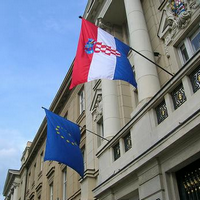Editor’s note: This is the first in a two-part series examining the European Union’s approach toward the integration of the Balkans into the union. Part I examines the record of EU integration to date. Part II will examine the road ahead.
The European Commission's (EC) recent progress reports on the Western Balkan countries, released in October, mark the latest stage in a long process designed to bring a region devastated by post-Communist conflict into the European fold.
The European Union’s influence on the Balkans over the past decade has certainly been positive, drawing the countries away from armed conflict and encouraging reconciliation and reform. But progress has been patchy and inconsistent. In the one clear success story, Slovenia moved almost seamlessly into the union -- and now the eurozone – following its accession in 2004. By contrast, prospects for Bosnia and Kosovo are currently going nowhere, hobbled by internal and external disputes.

